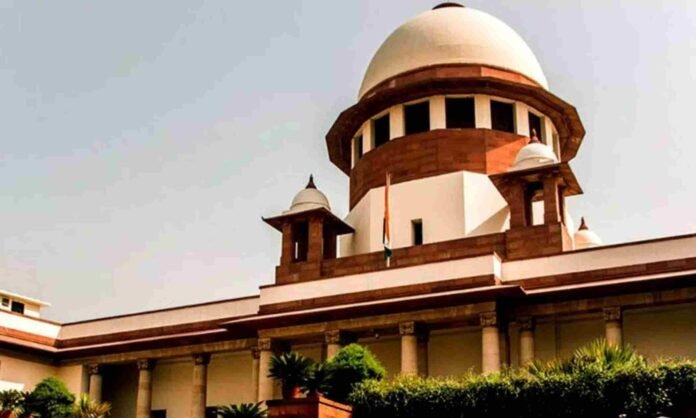The Supreme Court of India has stayed the operation of an assessment order issued by the Assistant Commissioner of CGST & Central Excise, Nashik-I Division, against Arham Infra Developers AOP in the matter concerning transactions under Joint Development Agreement (JDA).
The Bench of Justice Aravind Kumar and Justice R. Mahadevan issued notice to the Union of India and other respondents. The stay will remain in effect until further orders, providing interim relief to the developer from the disputed tax demand.
The Special Leave to Appeal (C) Nos. 26910/2025 and 27330/2025 before the Supreme Court arose from the judgment dated July 29, 2025, delivered by the Bombay High Court in Writ Petition No. 8650 of 2025.
The Court, after hearing submissions, directed issuance of notice returnable within four weeks and ordered that the operation of the impugned order “shall remain stayed in the meantime.”
Background of the Case
The litigation stems from the Bombay High Court’s decision in Writ Petitions Nos. 8649 and 8650 of 2025, filed by Nirmite Buildtech and Arham Infra Developers AOP, both Nashik-based real estate entities. The petitions had challenged GST assessment orders passed by the Nashik CGST Division concerning transactions under Joint Development Agreements (JDAs).
The High Court bench of Justice M.S. Sonak and Justice Jitendra Jain had dismissed the petitions on July 29, 2025, holding that the developers had an alternate statutory remedy available under Section 107 of the Central Goods and Services Tax (CGST) Act, which provides for an appeal to the Appellate Authority.
The Court criticized the petitioners for falsely claiming that no alternative or efficacious remedy existed, observing that such “bald statements” could not justify invoking writ jurisdiction under Article 226 of the Constitution.
It further noted that adjudication of GST liability arising from JDAs required factual examination of agreements between developers and landowners — a process best suited for the appellate forums established under the GST law.
The Bombay High Court emphasized that the petitions were an attempt to bypass the statutory appeal mechanism and possibly to “avoid pre-deposit” requirements. The existence of an alternative remedy is a fundamental bar to entertaining writ petitions, unless exceptional circumstances such as violation of natural justice or lack of jurisdiction are demonstrated. The developers could still approach the Appellate Authority within four weeks of the order, and such appeals would be decided on merits without considering limitation, provided statutory pre-deposits were made.
Supreme Court Intervention
The Supreme Court’s interim order staying the operation of the Nashik Assistant Commissioner’s order effectively suspends enforcement of the GST demand until the SLP is adjudicated. The Court’s notice to the Union of India and other respondents sets the stage for further scrutiny of whether the High Court’s refusal to entertain the writ petitions was appropriate in the facts of this case.
The stay order comes as significant relief to the petitioner, particularly given the High Court’s earlier refusal to intervene.
The matter will now be listed for further hearing after four weeks.
Case Details
Case Title: Arham Infra Developers AOP Versus UOI
Case No.: Special Leave to Appeal (C) No(s). 26910/2025
Date: 13-10-2025
Counsel For Petitioner: Yogesh Subhash Kolte
Read More: New Nominee Rules for Bank Accounts – 2025

